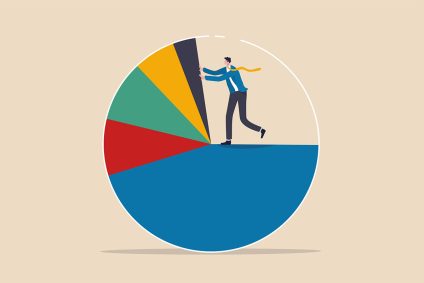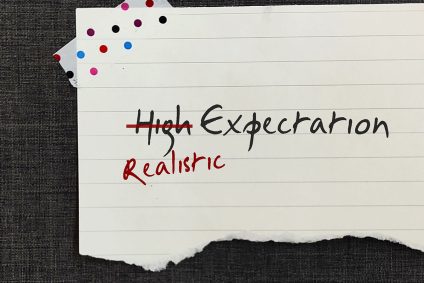2022 has seen some of the most severe declines on record in the bond market. Bonds and equities have both been impacted by the recent volatility – this is fairly unusual, as these two asset classes are generally uncorrelated.
As bonds are typically regarded as a ‘stable’ asset class, many investors are understandably concerned at this out of character behaviour.
So, does this mean that you should give up on bonds? Not necessarily. The success of a long-term investment strategy relies on staying the course even when the market is difficult. The characteristics of bonds, and their role in a portfolio, have not changed. Reacting to temporary market conditions is usually detrimental in the long-term.
Why Have Bonds Dropped in Value?
To appreciate why bonds still have a place in your portfolio, it’s worth understanding why they are behaving as they are.
It is common knowledge that inflation is a problem just now, with the cost-of-living crisis affecting the whole country, and indeed, much of the world.
To curb inflation, central banks normally increase interest rates. This makes it more attractive to save and invest, and less appealing to borrow and spend. The theory is that this results in less money freely circulating in the economy, dampening demand, and ultimately keeping price increases under control. The UK and the US have both implemented several interest rate increases in the last year, with the Bank of England most recently increasing the base rate to 2.25%.
We are in unusual economic times at the moment. Bonds and equities have dropped in sync, which although unusual, is expected to happen around 30% of the time. Inflation is being driven by supply issues, such as the energy crisis, war in Ukraine, and the aftermath of the pandemic. These challenges are more difficult for central banks to navigate, as moves to curb inflation can also stifle growth. The UK is probably already in recession, or most likely will be before the end of the year.
Bonds are highly sensitive not only to inflation and rate rises, but also to speculation about how these factors are going to play out. If interest rates are expected to rise, this can make certain bonds a less appealing prospect, as the interest yield is less valuable relative to the risk. This causes the price of bonds on the secondhand market to drop, and the interest rates on newly issued bonds to increase.
This, coupled with the prospect of recession, has resulted in volatility across both the bond and equity markets.
After the recent Mini-Budget on Friday 23rd Sept, the resulting fall in the value of the pound (largely by the markets’ reaction to the proposed tax cuts) and now the possibility of UK interest rates reaching 6% by the middle of 2023, bond prices have corrected again recently.
At Tandem, we would never advocate selling out of such a core asset like bonds after a fairly sizeable fall in the unit price, as there is the possibility that in the near future that bonds will correct upwards. Let’s be clear too, it is largely UK bonds that have suffered, and these will perform differently to the Global bonds we also hold in our TRAILS™ models. Holding one’s resolve is the message here and being patient, will likely mean that bonds will revert to their mean value in due course.
What’s Next for Bonds?
We cannot predict the future, but economic experts can make some informed guesses based on how asset classes behave.
As mentioned, speculation around future inflation and interest rates probably has a greater impact on bond prices than the current reality. It is likely that future rate increases have already been priced in. This means that when predicted changes do occur, the effect is likely to be minimal.
Bonds become more correlated with equities when the economy is slowing down and interest rates are rising. These are not ‘normal’ market conditions and are not likely to be sustainable for a long period. The likelihood is that bonds will eventually return to their role as a more stable diversifier against equities.
Why You Should Hold Bonds in Your Portfolio
Despite the recent volatility, there is still a place for bonds in a diversified portfolio.
First of all, making reactive changes to an investment portfolio due to short-term concerns is almost always detrimental. Moving out of bonds now can mean that when normal conditions eventually return, your portfolio could miss out on the recovery.
If you hold bonds in your portfolio, there will be a reason for that. A 100% equity portfolio might suit an investor who is comfortable with significant volatility and has a long investment timeframe. For others, 60% – 80% in equities may be more appropriate. Bonds still serve the same purpose they always did – to diversify against equities and provide some stability. We expect short-term deviation from this as we know that investments don’t always behave in a predictable manner. It is the long-term we are most interested in, and over a period of 10 or 20 years, the bumps are smoothed out and the trends can be seen more clearly.
The other main purpose of bonds is to provide an income. When bonds are issued, the yield is fixed as a percentage of the original investment. The yield doesn’t change, even when the price (and therefore the value) goes up and down. A regular income is a benefit in itself and can help to offset some of the price volatility. But when values are down, the yield looks more attractive relative to the price, which can encourage investors to buy. Increased demand can help prices recover. Like many aspects of the economy, the behaviour of bonds is cyclical, and volatility is often self-limiting.
The current situation, while worrying, will eventually pass. Years of historical data tells us that despite several periods of recession, war, and economic turmoil, the market generally moves in an upward direction with some bumps along the way. In fact, rising interest rates could eventually benefit bond investors as older bonds mature and yields increase on newer bonds. You simply need to stay invested for long enough to see the benefit.
Please don’t hesitate to contact a member of the team to find out more about your investment options.




